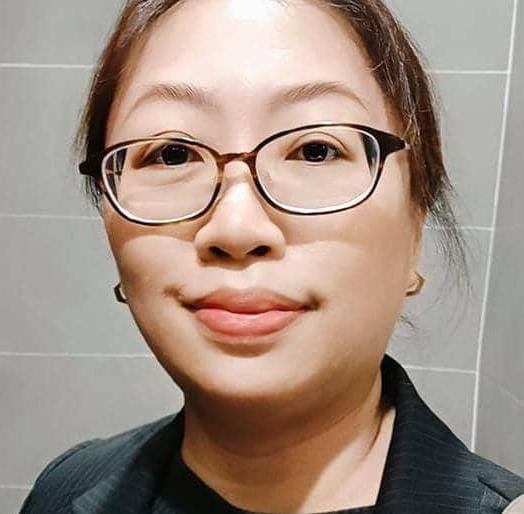By Angie S Chin
Founder&Lead, Vote Wisely Project (Sabah)
KOTA KINABALU: As Sabah approaches its next state election (17th Sabah State Election), we must face a truth too long ignored: The greatest threat to our future is not corruption, poverty, or external interference — It is actually DISUNITY.
This invisible wall divides us by race, faith, and political loyalty, weakening our ability to shape our own destiny. For decades, political fragmentation has been our silent crisis — one that no change of government has ever truly healed.
Alliances form and collapse. Leaders rise and fall. Promises are made and forgotten. And yet, our communities remain in the same struggle — not because Sabahans lack courage or talent, but because we are too divided to move forward together.
Imported Division, Forgotten Harmony
When Umno entered Sabah in the early 1990s, it did more than alter our politics — it changed our social fabric.
Peninsular-style politics, built on race and loyalty, began to reshape a state once celebrated for harmony and inclusivity.
Sabahans who once lived as one community started to see each other through the lens of “us” and “them.” Invisible hands with vested interests deepened these cracks, spreading narratives that served power, not progress.
Among the KDMR (Kadazan-Dusun-Murut-Rungus), there has long existed an unspoken sense of being the natural guardians of Sabah’s soul. Yet in holding on too tightly to that belief, we sometimes forget our brothers and sisters on the East Coast — the Bajau, Suluk, Bugis, and many others who have also built this land with their sweat and spirit.
This sentiment must evolve. Sabah was never built by one race or one faith — it was built by everyone.
If we are to rise in an era of technology, artificial intelligence, and global transformation, then our thinking must evolve too. We cannot demand progress while clinging to old divisions.
The cost of division
Sabah has never lacked capable leaders — only unity among them.
While Sarawak stands firm under a single, clear vision of “Sarawak First,” Sabah still struggles to define what “Sabah First” means.
Every new administration promises change, yet every collapse leaves deeper distrust. Political egos, short-term interests, and party-hopping have stolen from us the continuity we need to grow.
Disunity breeds inequality — and inequality fuels disunity. While the West Coast develops, the East Coast and interior remain behind. When development becomes a political reward instead of a basic right, unity becomes collateral damage.
Unequal Development, Unequal Faith
Disunity flourishes where inequality persists. While the West Coast continues to expand economically, the East Coast and interior remain underserved.
This imbalance fuels quiet resentment, often exploited by political actors who reward loyalty with development while neglecting others.
When basic progress becomes political currency, unity becomes collateral damage.
The Missing Voice of the People
Sabah’s civil society — our NGOs, media, and independent movements — remains fragile. Without strong, unifying voices, the public narrative is too easily shaped by partisan interests.
We forget that we — not politicians, not parties — are the soul of Sabah. When we lose our collective voice, we lose our direction.
Lessons from Sarawak
Sarawak is living proof that unity can thrive amidst diversity. Despite having dozens of tribes, dialects, and faiths, Sarawakians do not see each other as competitors — they see each other as part of one big family.
Their strength does not come from wealth or size. It comes from mutual respect, collective pride, and a shared understanding that Sarawak’s success belongs to everyone — not just a few.
This is what sets Sarawak apart.
And it is exactly what Sabah has been missing.
Too often, we let race, religion, and political allegiance draw lines between us.
We speak of unity, but act in fragments — divided by parties, by regions, by old wounds that no longer serve us.
Sarawak’s people move together because they believe in their home first — before politics, before self-interest, before anything else.
They carry a deep sense of “Sarawak First” — a mindset that transcends divisions and gives their leaders stability to plan long term.
Sabah, on the other hand, has yet to define what “Sabah First” truly means. We are rich in talent and heart, but poor in trust and cohesion. We still compete for recognition instead of building collective strength.
If Sarawak’s unity is its shield, then Sabah’s disunity has been our weakness.
And unless we rebuild that sense of shared purpose — of seeing each other not as rivals, but as partners in shaping our destiny — we will keep repeating the same political and social cycle.
Sarawak reminds us that progress is not a matter of luck or politics. It is a matter of mindset — of choosing harmony over ego, and community over chaos.
It’s time Sabah learns this truth and rediscovers what we once had: the spirit of togetherness that once made us the pride of Borneo.
The Way Forward: Sabah Above Self
Rebuilding unity cannot be achieved through slogans or political campaigns — it must come from the people themselves.
Sabahans must continuously reclaim our narrative through local storytelling, community-driven initiatives, and education that teaches our real history and shared values.
We must support platforms that transcend politics, celebrating our culture, creativity, and resilience.
And most importantly, we must challenge the outdated beliefs that divide us — even those that come from within our own communities.
Our guiding principle must be simple yet powerful: Sabah Above Self.
Only when we stand united again — as one people, one Sabah — will we be strong enough to shape the future we truly deserve.
For the sake of Sabah’s tomorrow, let us rebuild what we have lost — together.
Let unity be our greatest struggle, and also our greatest victory.


